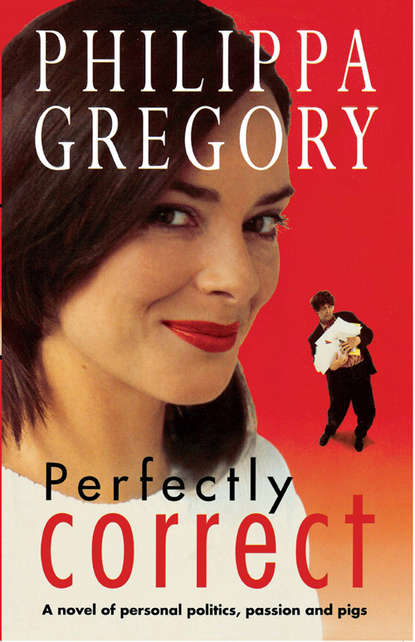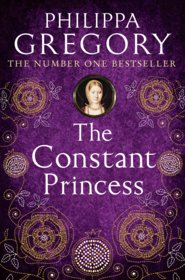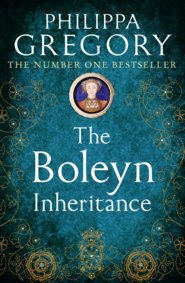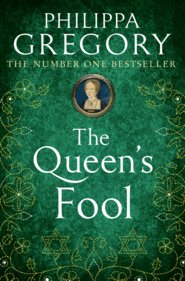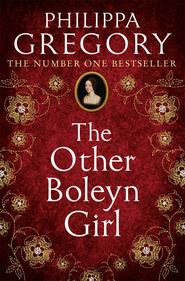По всем вопросам обращайтесь на: info@litportal.ru
(©) 2003-2025.
✖
Perfectly Correct
Автор
Год написания книги
2018
Настройки чтения
Размер шрифта
Высота строк
Поля
Andrew Miles looked at Louise as if he would ask her what work took place in the dining room but needed a clear view of the orchard. ‘Landscape painting?’
‘No, I’m trying to write an essay on Lawrence,’ Louise said. ‘But I can’t concentrate on anything when I keep seeing the van.’
‘Oh, writing. I thought you were a teacher.’
‘I teach at the university and I write as well.’
He opened the door of the Land-Rover. It creaked loudly and a few flakes of paint fell like dark green snow. ‘Got to get home,’ he said. ‘Pigs want feeding.’
‘Thank you for coming,’ Louise said. ‘I really do appreciate it. You’re such a good neighbour!’
Andrew Miles nodded without smiling. Louise, feeling that she had been gushing, retreated to the front door. Toby stood by his car, to ensure that Mr Miles crashed his Land-Rover into reverse gear and backed safely away from its shiny whiteness.
They went back into the house. ‘Coffee?’ Louise offered. ‘Or do you have to go?’
‘Actually, I think I’ll pop down and have another word with your old lady. She was talking to me last night about her childhood. I was thinking, I might do a bit of oral history research on her. It’s something I’ve always wanted to do. If she’s going to be here for a few days I could take the opportunity.’
‘You hate oral history,’ Louise pointed out. ‘You said it was worse than local history in encouraging people to be egotistical about their boring past, trying to pass tedious personal gossip off as interesting facts.’
‘Oh, yes,’ Toby said with an easy laugh. ‘But if she really was born here and adopted in London then she does have a story. Quite different from all the people who worked in newspapers before computers, or served in shops before supermarkets. She might be really quite interesting.’
Louise shrugged. Her dream of the flood-tide carrying books, the old woman’s admiration of Andrew Miles, and Toby’s sudden attentiveness all conspired to make her feel off-balance. She felt as if the calm certainties of her life as a career academic and adulterous lover were all being questioned at once. ‘Talk to her if you want to,’ she said. ‘But if Miriam rings me, are you supposed to be here?’
‘I’m in the library at university,’ Toby said. He knew that the naming of Miriam was a warning of Louise’s displeasure, but his inner joy that he had successfully laid claim to the old lady’s story without challenge from Louise was too great.
‘You do some work,’ he urged. ‘Don’t worry about the old lady. She’ll be no trouble to you now.’ He smiled at her and went down the garden path to the gate to the orchard. Louise turned and went back into the house.
‘The Virgin and the Gypsy, a patriarchal myth of rape and female growth,’ Louise typed into the keyboard. The words came up on the screen, each letter trotting out behind the cursor like a reliable friend. Louise paused. She had the start of an idea – that Lawrence portrayed the young women as waiting for an event in their lives, that Yvette in particular was shown as a girl awaiting transition into womanhood. There was some concealed pun, Louise thought, in the girls having attended ‘finishing’ school – and the sense that their travels ended at the start of the book. Lawrence affected to know better – that the two women were not finished, they were not even started until they were sexually active.
So far so good (tick tick in the margin) but then Lawrence went further and implied that sexual development was the only future open to them. Their conversation was mainly about adornment and husband-catching. Their social life was all courtship. And their inner life was the progress from unknowing virginity to maturity which could only be achieved through sexual intercourse with a knowing man. All this was very bad indeed (cross cross cross in the margin, and often’!’).
Louise thought she could write a convincing essay dividing Lawrence the rebel – against the bourgeois society, which was good (tick tick) from Lawrence the sexist – against women except as sexual objects, which was bad (cross cross cross). But when she came to write the first paragraph she found that between her and the screen came an entrapping maze of images. The snowdrop-flower of the mother’s face, the gypsy lashing his horse to reach the house before the thundering flood of the river, Andrew Miles’s gentle smile at the old woman, and her own dream of rising water and the man in her bed. A man to whom she had cried ‘I’m sorry! I’m sorry!’ A wronged man, the wronged man. The wrong man.
Louise had never screamed at any man, least of all Toby whose control over his own temperament inspired a calm, almost balletic response from her. Toby was so charming, so consciously sexily charming that he inspired Louise to be charming too. She could never have flung herself at him screaming ‘I’m sorry’.
In the end she wrote, ‘It is almost impossible to construct a feminist reading of D.H. Lawrence’s works, immured, as he is, in the sexism of his generation and class’, which felt like the start of an appropriate revenge on a dead author who had filled her night with unacceptable but irresistible images of desire and then given her a dream of a wronged man in her bed and a scarlet flood of spoiled books.
The phone ringing abruptly at her elbow made her jump. She picked it up, half-expecting Andrew Miles with some news of a gear box. But it was Miriam.
‘I can’t talk,’ she said. ‘I’m in a rush. I wondered if I could come and stay with you tonight? I’m up to my ears and I want a break.’
‘Of course,’ Louise said. Miriam often stayed a night in her cottage. Sometimes she came with Toby, sometimes alone. ‘Lovely.’
‘I’ve been doing the finance books of the refuge all morning and the walls are closing in on me. Hell! Louise, d’you remember when we said we’d never get office jobs?’
‘It’s hardly an office.’
‘It’s office work. It just happens that it’s done on an old school desk in a cramped room without any qualified help. This does not make it any better, surprisingly enough. Shall I bring food?’
‘I’ll go into the village and shop,’ Louise said. ‘I might as well. I’m not getting anything done here.’ She paused and then asked with clever deceit, ‘Will Toby come too?’
‘I’ve lost him,’ Miriam replied. ‘He’s not at home and he’s not in his office. Can I be a bore and bring him if he wants to come?’
‘That’s fine,’ Louise said. ‘I’ll make enough for three and we can pig out if he doesn’t come.’
‘Thanks,’ Miriam said. ‘I’ll go to my meeting now. If they ask for a treasurer’s report they can see my notepad. I can’t make head or tail of it myself.’ She giggled, her old feckless undergraduate giggle, and put down the telephone.
Louise pressed the ‘Save’ key on her word processor and shut the machine down, preserving its one solitary sentence, and went out into the garden.
Toby and the old woman were sitting on her steps. She had a large cardboard box on her lap and she was showing Toby one yellowing piece of newspaper after another. Louise waved and was surprised to see Toby stuff a newspaper clipping back into the box and come quickly forward.
‘I’ve just had Miriam on the phone. She’s coming out for dinner and to stay overnight. Will you want to stay too? I have to shop.’
The thought of his wife and mistress under the same roof again was always a temptation for Toby, but then he remembered a meeting on graduate students which he was supposed to chair. ‘Damn, I can’t,’ he said. Besides, it would give him a chance to go to the library and take out everything they had on the suffragette movement. ‘Got to chair the humanities programme meeting.’
‘I’ll shop now then,’ Louise said distantly. ‘Shall I buy something for lunch?’
Toby glanced back at the old woman with her tempting box of cuttings sitting on her steps in the sunshine. ‘No, I’ve delayed you too much today, anyway,’ he said. ‘I’ll finish up here and go.’
Louise nodded rather coldly. ‘See you Monday then.’ She waved a casual hand and then went back up the garden to her car. She and Toby were accustomed never to display affection before strangers, but she was irritated by having to be discreet in her own garden.
Wistley village was built along one main street with the village green a bulbous lump on the west side of the road. In older days it had been the village children’s playground when they had tumbled out of the little school beside it. They would buy everlasting gobstoppers or barley-sugar spirals at the village shop and put down their jackets for goalposts in winter, wickets in summer. People who lived adjacent to the green endured the bruising of plants in their front gardens by the flying trespass of a boundary shot or a wildly kicked goal. Often the game was interrupted when an irate gardener burst from a cottage and chased a child across the green and across the road. The children ran like a yelping pack to the common and then dropped into the bracken and lay low.
Since 1972 the village children had been bussed to the big school twelve miles away, and the weekday village was as desolate as Hamelin after the piper. The old school house had been converted into a rather imposing-looking residence, with white gables and mock Georgian bow windows and a double door. The new owner, a retired captain of marines, had put up a name plate which read ‘Wistley Manor’, a rather unfortunate misreading of history in a village which had always escaped a resident squire and which had been, for a brief exciting period in the late eighteenth century, organised as a radical labourers’ co-operative.
No-one objected. The Methodist chapel, which had held services since the great Wesley himself had preached on the green and led a deafening chorus of hymns, was deconsecrated in the early ‘80s and converted into a house which then called itself ‘Wistley House’. This small piece of one-upmanship amused the village and put the Captain’s nose badly out of joint. The two households sent each other Christmas cards of engravings of their houses and signed inside, ‘from all at Wistley Manor’ or ‘from all at Wistley House’, and the question of social predominance was never conclusively settled.
The small Norman parish church survived, though the old vicarage had been sold to a wealthy couple from London who had it done up and maintained, but hardly ever visited. The village children stole daffodils from the immaculate lawns on Mothering Sunday. The vicar, with no home in the village, now commuted from nearby Hallfield, with two other villages in his charge. Wistley had morning communion every third Sunday and some people blamed the poor attendances on the difficulty of predicting whether this particular Sabbath was sacred in Wistley or not.
The majority of people in the village lived in a small council estate on the south side of the green. The houses were pale concrete. They had won an award for imaginative design in the late ‘70s and were notorious for the perennial leaks in the flat roofs. Some of the long narrow gardens were bright with skeletal climbing frames in primary colours. Others were packed with wigwams of peas and beans and obedient rows of potatoes. Many grew nothing but long grass and mysterious bits of engines. One or two had gone very modern indeed and concreted the lot, speckling the concrete with a pattern which was supposed to look like cobblestones or hand-laid bricks. Most of the men worked in Hallfield at the fruit packing and bottling factory. Many women went to Hallfield for part-time work, but some cleaned or nannied in the nearby large renovated cottages and houses.
There was a thriving corner shop run by the widow Mrs Ford which sold newspapers, magazines, sweets, cigarettes, and a small supply of tinned and dry goods. There was a butcher who also stocked teas and groceries. Most of his trade came from the larger cottages and houses. It was cheaper to catch the bus to the supermarket at Hallfield than pay his inflated prices. Only his mince was reasonable and his sausages, though suspected of excess amounts of cereal or worse, were cheap. There was a small greengrocer’s, whose owner was planning to retire shortly. The competition from nearby farm shops and fields of pick-your-own fruit was proving too much. And there was a tiny off-licence which made a living from opening in the evening and selling everything that anyone might want after six. A mobile fish-and-chip van stopped outside the shop on Fridays and Saturdays.
There were two pubs: the Holly Bush, which was used by people from the council houses and boasted a successful darts team, and the Olde House at Home, Wistley, which had been opened in 1973 and boasted many darkened beams – some of them even made from real wood – faded prints, a good menu of bar food, and three different types of beer. Andrew Miles, a connoisseur of public houses, had been thrown out of the Olde House at Home, Wistley, on Christmas Eve, 1989, for caressing the landlord’s wife’s bottom, and remained permanently banned.
Louise, who was planning to make a chicken casserole for herself and Miriam which could go in the Rayburn now and need no attention until they were ready to eat, bought chicken pieces at the butcher’s, and onions, potatoes, red peppers and tomatoes at the greengrocer’s. On her way back to her car she was stopped by Captain Frome of Wistley Manor.
As an unobservant newcomer to the village, Louise had no idea that Wistley Manor was, in reality, a new house, with a snob name. She always felt herself to be in the presence of a genuine squire of the manor when Captain Frome spoke to her. She had attended a sherry party at his house, shortly after moving in to the cottage, and had felt herself simultaneously insulted and flattered by his weighty paternalist flirting. She believed that he was born and bred in Wistley Manor and heir to a long tradition of rural squires. She felt he was the sort of man who would know what gamekeepers did during the day. She had no idea that he knew even less about the countryside than she did.
Вы ознакомились с фрагментом книги.
Приобретайте полный текст книги у нашего партнера:
Приобретайте полный текст книги у нашего партнера:





